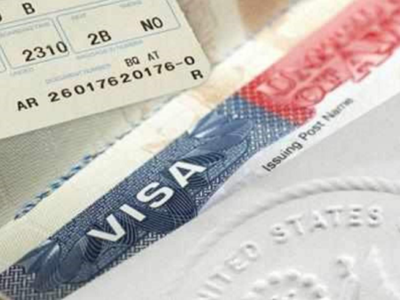H1b visa news: H-1B visa extensions will be smoother as Trump-era memo is revoked | World News


MUMBAI: The United States Citizenship and Immigration Services (USCIS) has instructed its officers to defer to previous approvals when extending visas, such as the H-1B work visa.
In short, USCIS is reverting to its earlier long-standing guidance issued in 2004. The Trump administration had revoked this guidance and required that each visa extension be treated as a new application. This had led to an increase in requests for additional documentation (known as requests for evidence – RFEs) which increased administrative costs for sponsoring employers and led to delays. Or in other instances, there was an outright denial of visa extensions on various grounds.
To illustrate: Over the past few years, even when there was no change in facts – such as the job profile, the visa extension sought for H-1B holders was denied on the ground that the job is not a speciality occupation. This stand was taken by USCIS, even as the original H-1B visa had been issued owing to the job being a speciality occupation. TOI has reported on several such cases and the lawsuits that ensued.
However, USCIS cautions that officers may not defer to a prior approval when there are material changes or where new material information is available that undermines eligibility, which includes publicly available information affecting eligibility for the benefit. The policy will also not apply if there was a material error in the prior decision that led to granting of the visa.
Rajiv S. Khanna, managing attorney at Immigration.com told TOI, “Business entities make plans based on consistency and predictability – not being able to rely on the availability of professional workers was not conducive to business nor to non-citizen workers.”
“It was always very difficult to explain to any reasonable person that an immigration benefits application that had been approved could be denied later during an extension, even without any changes in the facts. Thus, the rule of law was usurped by unfettered discretion. Further, litigating matters of discretion in courts was a difficult and time-consuming task,” added Khanna.
There is an annual cap of 85,000 new H-1B visa allotments, thus typically visa extensions are much more in number. For instance, in fiscal 2019, the number of new H-1B visas issued to Indians was 79,423 (which may include non-cap visas). Visa extension numbers were much higher at 1.99 lakh.
This favourable policy change announcement follows US President Joe Biden’s Executive Order aimed at restoring faith in the legal immigration system. Mitchell Wexler, partner, Fragomen, a global immigration law firm told TOI, “After the 2017 Trump-era policy memo dispensing with the more permissive deference policy, RFEs increased significantly, even on applications with multiple prior approvals on the same facts. Reverting back to the prior policy should decrease the number of extension RFEs and reduce their processing times.”
Wexler sums up by saying, “This is a welcome, common sense change. All it does is allow USCIS not to re-adjudicate eligibility requirements that it already had. Of course, required updating of facts and circumstances is still required which is exceedingly reasonable.”
FacebookTwitterLinkedinEMail

“평생 사상가. 웹 광신자. 좀비 중독자. 커뮤니케이터. 창조자. 프리랜서 여행 애호가.”
